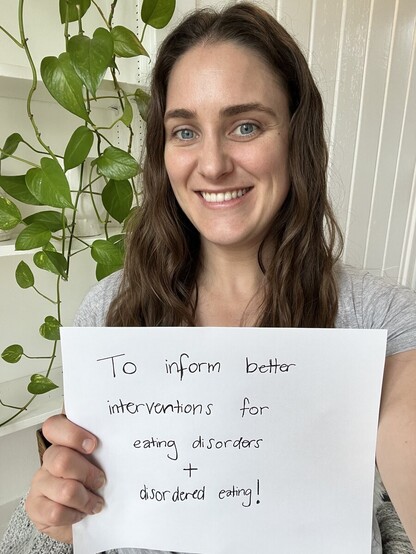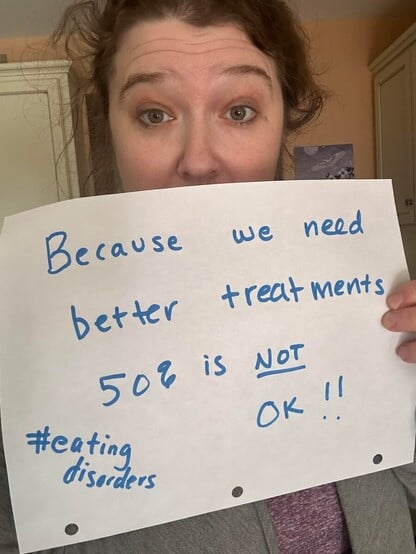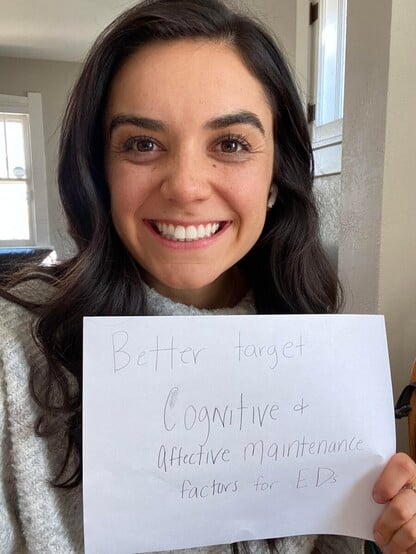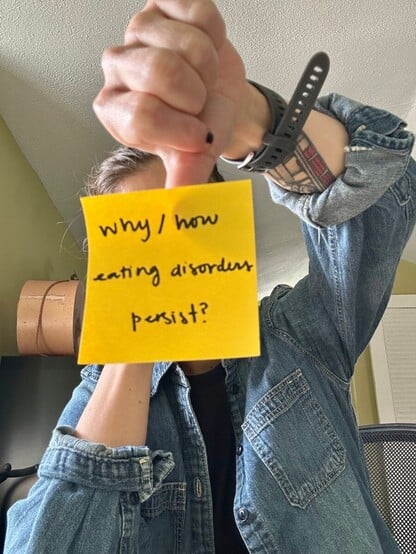Cheri Levinson · @cherialev
192 followers · 484 posts · Server mstdn.partyRT @CRalphNearman
Getting super excited to be in #DC to present our #eatingdisorder #research & #therapeutics on 3 symposiums #APS @PsychScience Present 3 talks & a poster @aed_iced #ICED2023 Then present #SAA2023 in #Amsterdam #WhyWeStudyEDs @uofleatlab @UofLInnovate @IntJEatDisord
#dc #eatingdisorder #research #therapeutics #aps #iced2023 #saa2023 #amsterdam #whywestudyeds
Cheri Levinson · @cherialev
191 followers · 397 posts · Server mstdn.partyRT @uofleatlab
Our postdoc @jamieleepennesi studies risk and protective factors for EDs to inform better prevention and treatment interventions for eating disorders and disordered eating! #edaw #whywestudyEDs
Cheri Levinson · @cherialev
190 followers · 383 posts · Server mstdn.partyRT @uofleatlab
Our lab director @CheriLev studies EDs because we need treatments for #eatingdisorders that work in more than 50% of cases!👏 #edaw #whywestudyeds
#eatingdisorders #edaw #whywestudyeds
Cheri Levinson · @cherialev
190 followers · 383 posts · Server mstdn.partyRT @uofleatlab
Our postdoc, @amlortiz studies EDs to learn how we can better target cognitive and affective maintenance factors in ED treatment!👏🧠😭😠#edaw #whywestudyEDs
Cheri Levinson · @cherialev
190 followers · 383 posts · Server mstdn.partyRT @uofleatlab
We study EDs because of the high comorbidity with anxiety disorders. Learning from the anxiety disorder field could help us improve treatments for EDs! 😨🙌👌#edaw #whywestudyEDs
Cheri Levinson · @cherialev
190 followers · 378 posts · Server mstdn.partyRT @uofleatlab
The structure of eating disorders (EDs) is more than just traditional ED symptoms. The way we feel *about* our body may be related to the way we feel *in* our body. From @ClaireECusack and @IrinaVanzhula's paper on somatic symptoms in eating disorders👌👏🫀 #edaw #whywestudyeds
Cheri Levinson · @cherialev
190 followers · 372 posts · Server mstdn.partyRT @uofleatlab
Sleep disturbance and anxiety are important central features connected to anorexia and atypical anorexia symptoms👏😴 From @CRalphNearman's paper looking at core and pathway symptoms in AN and Atypical AN #EDAW #whywestudyeds




